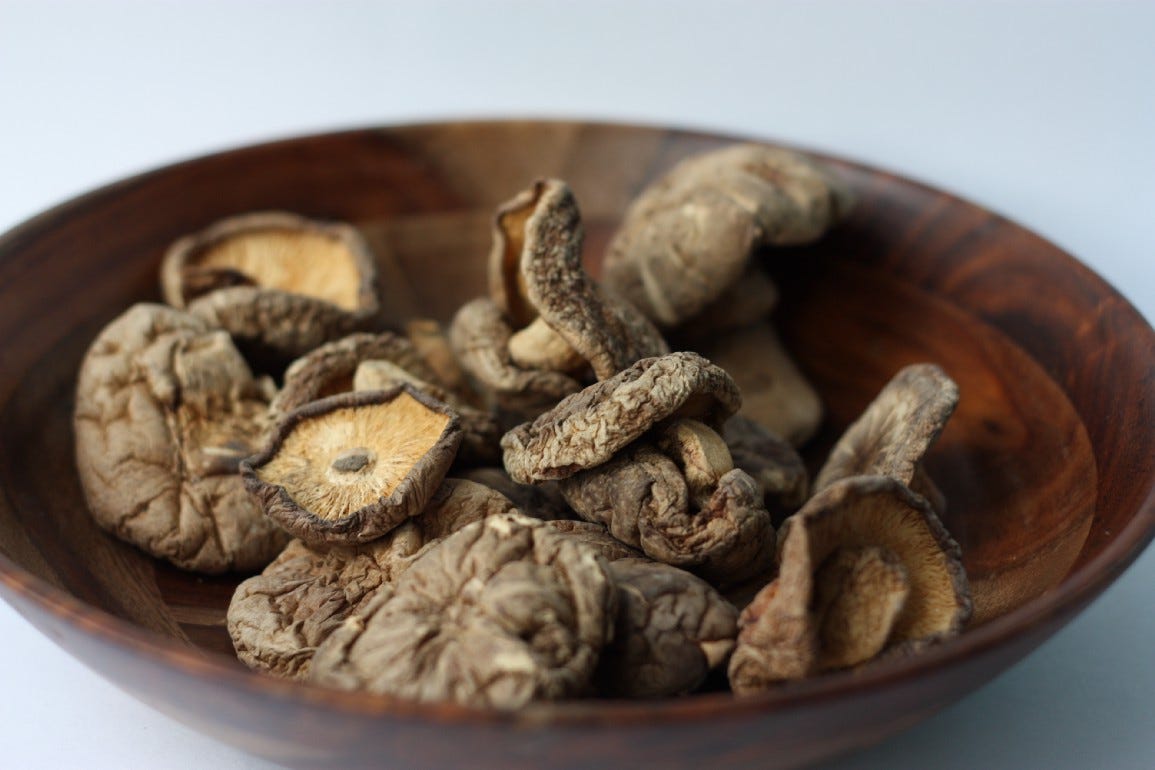Mushrooms That Influence Heart Health By Affecting Immune System Activities
It all lies with the effect of the beta glucans in those mushrooms.
I do like the taste of the shiitake mushroom. This description already makes me want to eat it now:
Shiitake mushrooms are known for their strong, earthy flavor. They’re packed with umami thanks to the amino acid glutamate. When cooked, shiitake caps have velvety, meaty texture, while the stems can be tough — or pleasantly chewy, if cooked long enough.
Nutritionally, the same article states that:
Shiitake mushrooms are a good source of dietary fiber, copper, selenium, manganese, protein, iron, and B vitamins such as pantothenic acid. Like other mushrooms, shiitakes can be a good source of vitamin D if exposed to sunlight.
One other fancy nutrient that the shiitake mushroom also contains is the 1,3–1,6 beta glucan. Oats and grains do contain beta glucans of the 1,3–1,4 variant (the numbers represent which carbon atoms are linked to which carbon atoms, and that’s another technical story altogether).
But what we do need to know is that the 1,3–1,6 beta glucan contains more biological activity than the 1,3–1,4 beta glucan, hence the two types of beta glucans are different in terms of their ability to support biological functions within the body.
Traditional Chinese medicine has also looked at the use of reishi mushrooms (lingzhi) as a herb that could support human health and has been so described as the “mushroom of immortality”. These, too, contain the 1,3–1,6 beta glucans that function similarly to the shiitake mushrooms.
Which is why the popular opinion is that the 1,3–1,6 beta glucans from these mushrooms can help to support one’s immune system, but not so much for the 1,3–1,4 beta glucans from grains.
When consumed in sufficient bulk (whether of the 1,3–1,6 or the 1,3–1,4 variant), they will exert a strong influence on the body’s ability to absorb sugar and promote the reduction of fats in the blood.
And that’s why soluble fibre is one of the recommendations by the United States Food and Drug Administration for preventing heart disease. Most grains contain a lot of the 1,3–1,4 variant, and that’s how it works.
But of course, the 1,3–1,6 variant exerts more biological activity than the 1,3–1,4 variant — they are able to provide, according to this article:
antitumor, antibacterial, antiviral, anticoagulatory and wound healing activities.
The 1,3–1,6 variant also “constitutes the cell wall of some pathogenic yeasts and bacteria, and strongly contribute to microorganism recognition and clearance”, according to this article.
Therefore, these guys are what we can call immunomodulators — they modulate, i.e. they adjust or keep in proper proportion the ability of the immune system to respond to infection or injury. They do so by signalling macrophage cells to act, and we do know of the importance of the macrophage in the immune system:
Now, macrophage activity is also key to maintaining the effectiveness of efferocytosis, a process that helps to keep the size of atherosclerotic plaques under control within the human body:
Keep reading with a 7-day free trial
Subscribe to The Biochemistry Of Human Health to keep reading this post and get 7 days of free access to the full post archives.





